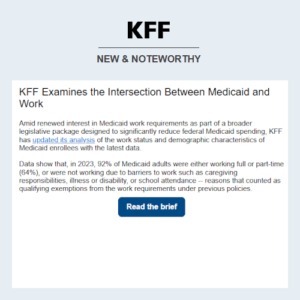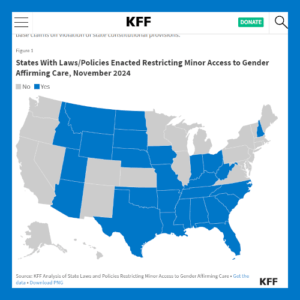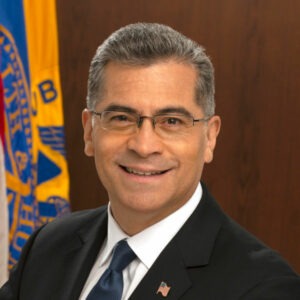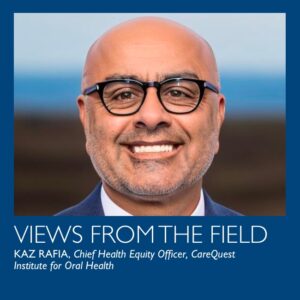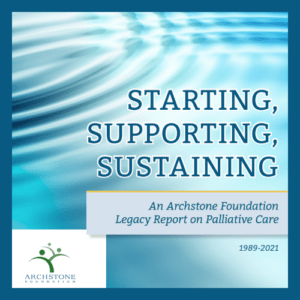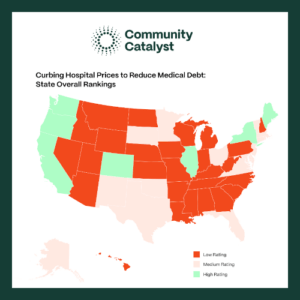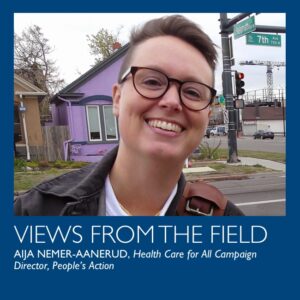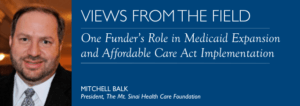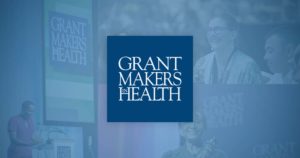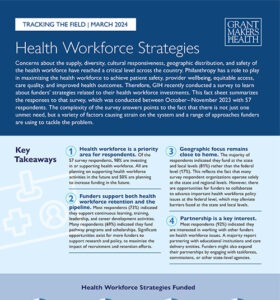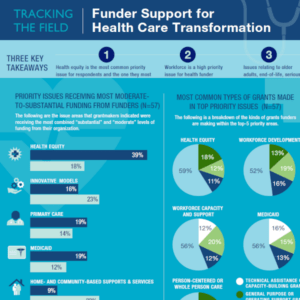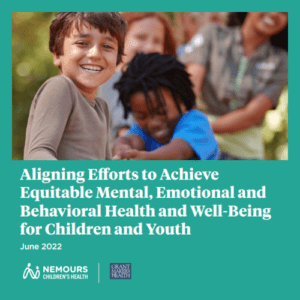Featured Resources
Data Show That The Majority of Adult Medicaid Enrollees are Working
Amid renewed interest in Medicaid work requirements as part of a broader legislative package designed to significantly reduce federal Medicaid spending, KFF has updated its analysis of the work status and demographic characteristics of Medicaid enrollees with the latest data.
Youth Access to Gender Affirming Care at the Supreme Court: What to Know
Ahead of December 4 arguments in a Supreme Court case (U.S. v. Skrmetti) challenging the constitutionality of Tennessee restrictions for gender affirming care for minors, KFF explores the background of the case and potential rulings.
Explore Access and Quality Topics
Latest Resources
One Funder’s Role in Medicaid Expansion and Affordable Care Act Implementation
The Mt. Sinai Health Care Foundation, a 19-year-old conversion foundation, has elevated its health policy agenda to advocate for health reform and create a key role for health philanthropy in the implementation of the Affordable Care Act in Ohio.
Increasing Access to Oral Health Care in Missouri: One Funder’s Approach
The Missouri Foundation for Health began to address better access to oral health care for their region in 2013 by expanding the capacity and infrastructure of the state’s oral health system. The success of their initiative is a result of the development of partnerships and eliciting community input, and is an ideal model for foundations in other areas.
A Healthy Public Needs More Than Public Health: Lessons for Addressing Substance Use
The longstanding invisibility of substance use disorders simply cannot continue if we truly want to improve communities. We have a window of opportunity to make great strides if physical and behavioral health policymakers, advocates, and foundations work together.
Youth Mental Health First Aid: Implementation Lessons from Pennsylvania
In the fall of 2013, the Brandywine Health Foundation and key area leaders learned from the Pennsylvania Youth Survey about the high rates of depression among Coatesville-area youth compared with youth in the remainder of Chester County and the state as a whole.
Sparking a Patient Activation Movement
The Jewish Healthcare Foundation believes that a great health care consumer awakening is upon us. Read this Views from the Field on how a patient activation movement could lead to a health revolution and transform population health.
Publications and Reports
2024 Survey Summary: Health Workforce Strategies
Concerns about the supply, diversity, cultural responsiveness, geographic distribution, and safety of the health workforce have reached a critical level across the country. Philanthropy has a role to play in maximizing the health workforce to achieve patient safety, provider well-being, equitable access, care quality, and improved health outcomes. Therefore, GIH recently conducted a survey to learn about funders’ strategies related to their health workforce investments.
Funder Support for Health Care Transformation
This infographic summarizes the responses to a Grantmakers In Health funder poll, conducted October 2022, on how philanthropy is supporting health care transformation efforts, especially those concerned with improving quality of life, coordinating complex care, and taking patient preferences into account.

